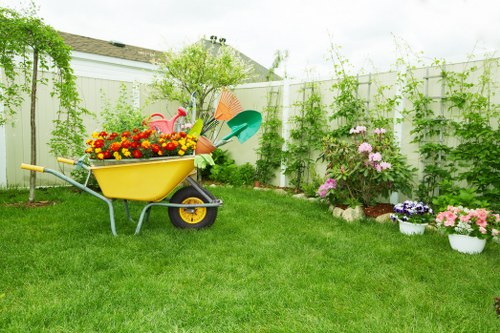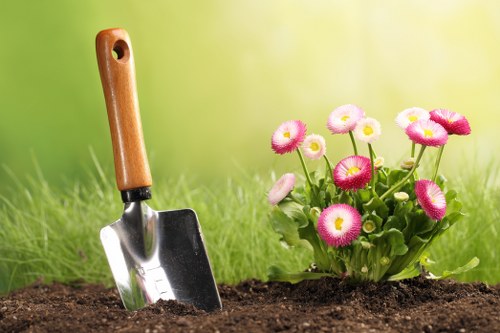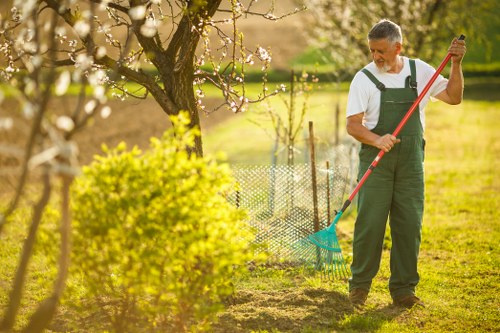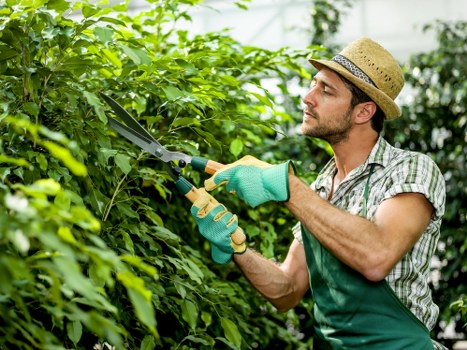Effective Driveway Algae Removal in Clerkenwell

Dealing with algae on your driveway in Clerkenwell can be a frustrating experience. Algae not only makes your driveway look unsightly but can also create slippery surfaces, posing safety risks for you and your family. Understanding how to effectively remove algae and prevent its return is essential for maintaining a clean and safe property.
Algae thrives in damp, shaded areas, and driveways in Clerkenwell often provide the perfect environment for its growth. The combination of the region's climate and the structure of many driveways can lead to persistent algae problems if not addressed properly. Fortunately, there are effective methods and professional services available to help you tackle this issue.
In this article, we will explore various strategies for driveway algae removal in Clerkenwell, including DIY methods, the benefits of hiring professionals, and tips for preventing future growth. We'll also highlight the areas surrounding Clerkenwell where these services are in high demand.

Understanding Algae on Driveways
Algae, a simple plant-like organism, thrives in moist environments where it can receive adequate shade and dampness. On driveways, algae growth is often mistaken for moss or lichen, but understanding the difference is crucial for effective removal.
Algae growth on driveways is typically a green, slimy layer that can make surfaces slippery. Unlike moss, which has a more structured appearance, algae tends to form a thin, film-like layer. Identifying algae correctly ensures that you apply the right removal method.
Factors contributing to algae growth include poor drainage, ample shade from surrounding buildings or trees, and the presence of limestone or other minerals in the driveway material. Addressing these factors can help in both removal and prevention.

DIY Algae Removal Methods
Pressure Washing
One of the most effective DIY methods for removing algae is pressure washing. This technique uses high-pressure water jets to blast away the algae from the driveway surface.
Advantages:
- Quick and efficient
- Effective for large areas
- Immediate results
However, care must be taken to avoid damaging the driveway surface, especially if it is made of sensitive materials like concrete or stone.
Using Vinegar Solutions
Vinegar is a natural and eco-friendly option for algae removal. Mixing vinegar with water and applying it to the affected areas can help kill and remove algae.
Steps:
- Mix one part vinegar with one part water.
- Pour the solution onto the algae-affected driveway area.
- Let it sit for 15-20 minutes.
- Scrub the area with a stiff brush.
- Rinse thoroughly with water.

Professional Algae Removal Services
While DIY methods can be effective, hiring a professional for driveway algae removal in Clerkenwell offers several benefits. Professionals have the right tools and expertise to handle stubborn algae growth without damaging your driveway.
Benefits of Professional Services:
- Thorough cleaning using specialized equipment
- Safe application of cleaning agents
- Prevention of future algae growth with sealants
- Time-saving and convenient
Moreover, professionals can assess underlying issues such as drainage problems and recommend solutions to prevent algae from returning, ensuring long-term maintenance of your driveway.
Choosing the Right Service
When selecting a driveway algae removal service in Clerkenwell, consider factors such as experience, customer reviews, and the range of services offered. A reputable company will provide a comprehensive approach, addressing both removal and prevention.

Preventing Future Algae Growth
Preventing algae from returning to your driveway involves addressing the conditions that allow it to thrive. Here are some effective prevention strategies:
- Improve Drainage: Ensure that water drains away from your driveway to reduce moisture levels.
- Increase Sunlight Exposure: Trim overhanging branches and remove obstacles that block sunlight.
- Seal Your Driveway: Apply a driveway sealant to create a protective barrier against moisture and algae growth.
- Regular Cleaning: Maintain a regular cleaning schedule to remove algae and prevent its establishment.
Implementing these measures not only helps in keeping your driveway algae-free but also enhances its longevity and aesthetic appeal.
Local Areas Near Clerkenwell Benefiting from Algae Removal Services
Clerkenwell is surrounded by several neighborhoods and areas that often require driveway algae removal services. Understanding the proximity and unique features of these areas can help residents choose the best service providers.
- Farringdon: Just west of Clerkenwell, Farringdon combines historical architecture with modern living, making driveway maintenance essential for preserving its charm.
- Holborn: South of Clerkenwell, Holborn's busy streets and older properties make efficient algae removal important for safety and appearance.
- Bloomsbury: Known for its gardens and educational institutions, Bloomsbury requires professional driveway care to maintain its pristine look.
- Islington: Northeast of Clerkenwell, Islington's diverse properties benefit from tailored algae removal solutions.
- King’s Cross: A major transport hub, keeping driveways clean in King’s Cross is crucial for high foot traffic areas.
- Angel: Adjacent to Clerkenwell, Angel's residential and commercial mix demands effective driveway maintenance services.
- Tottenham Court Road: Famous for shopping and entertainment, Tottenham Court Road requires driveway upkeep to complement its vibrant atmosphere.
- Daventry: A quiet area near Clerkenwell, Daventry benefits from regular algae removal to maintain its serene environment.
- Barbican: With its modern developments, Barbican requires consistent driveway care to match its contemporary style.
- Smithfield: Known for its market, Smithfield's driveways benefit from professional algae removal to handle the area's high activity.
- Paddington: West of Clerkenwell, Paddington combines historical sites with modern amenities, necessitating effective driveway maintenance.
- Chalk Farm: A bit further out, Chalk Farm's residential driveways still look their best with regular algae removal services.
- Camden Town: Vibrant and lively, Camden Town's driveway spaces need upkeep to stay attractive for locals and visitors.
- Regent's Park: Adjacent to cultural sites, maintaining driveways in Regent's Park area ensures the beauty of the surroundings.
- Hampstead: A bit further north, Hampstead's high-end properties require top-notch algae removal services to maintain their prestige.
Why Choose Professional Driveway Algae Removal in Clerkenwell
Driveway algae removal might seem straightforward, but achieving lasting results often requires professional expertise. Professionals in Clerkenwell understand the local climate and property conditions, allowing them to provide tailored solutions that effectively eliminate algae and prevent its recurrence.
Investing in professional services not only saves you time and effort but also ensures that your driveway remains safe and visually appealing. With the right approach, you can enjoy a clean driveway without the hassle of repeated cleaning sessions.
Conclusion
Algae on your driveway can be a persistent problem, especially in areas like Clerkenwell where the environment is conducive to its growth. Whether you choose to tackle the issue yourself or hire a professional, understanding the best methods for algae removal is key to maintaining a clean and safe driveway.
By implementing effective removal techniques and preventive measures, you can ensure that your driveway remains algae-free and enhances the overall appearance of your property. Don’t let algae diminish the beauty and safety of your driveway—take action today.
Frequently Asked Questions
1. How often should I clean my driveway to prevent algae growth?
Regular cleaning is essential to prevent algae growth. It's recommended to clean your driveway at least twice a year, preferably in the spring and autumn, to remove any buildup and address any early signs of algae.
2. Can I use bleach to remove algae from my driveway?
Bleach can be effective in killing algae, but it must be used with caution. Dilute the bleach properly and apply it carefully to avoid damaging surrounding plants and driveway materials. Always follow safety guidelines when handling bleach.
3. What are the best preventive measures to stop algae from coming back?
Improving drainage, increasing sunlight exposure, sealing the driveway, and maintaining a regular cleaning schedule are some of the best preventive measures. These steps help create an environment that is less conducive to algae growth.
4. Is pressure washing safe for all types of driveways?
Pressure washing is generally safe, but the pressure settings should be adjusted based on the driveway material. High pressure can damage delicate surfaces like natural stone, so it's important to use the appropriate pressure and technique.
5. When should I hire a professional for algae removal?
If DIY methods are not effective, if you have a large driveway, or if you are concerned about damaging the driveway surface, it's best to hire a professional. Professionals have the expertise and equipment to handle the job efficiently and safely.


